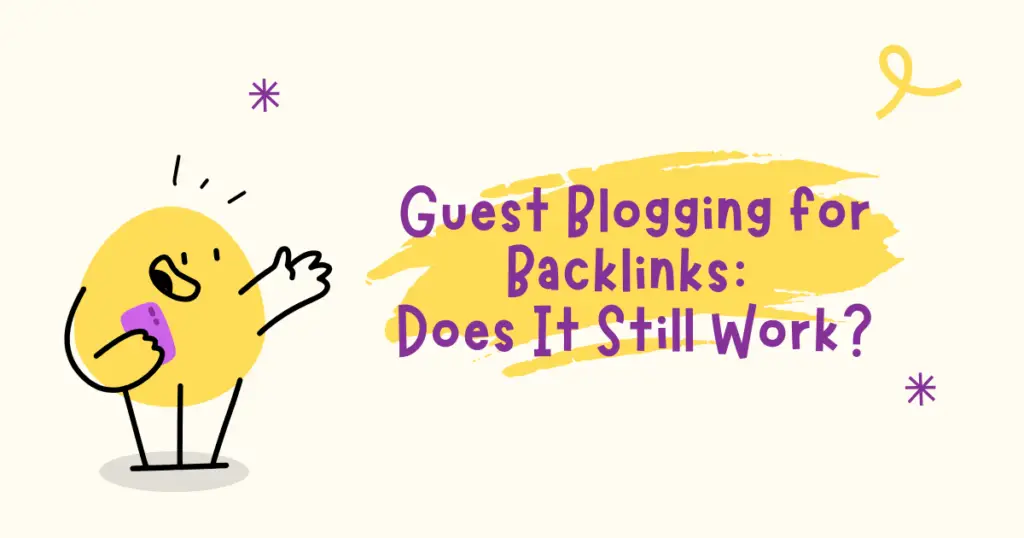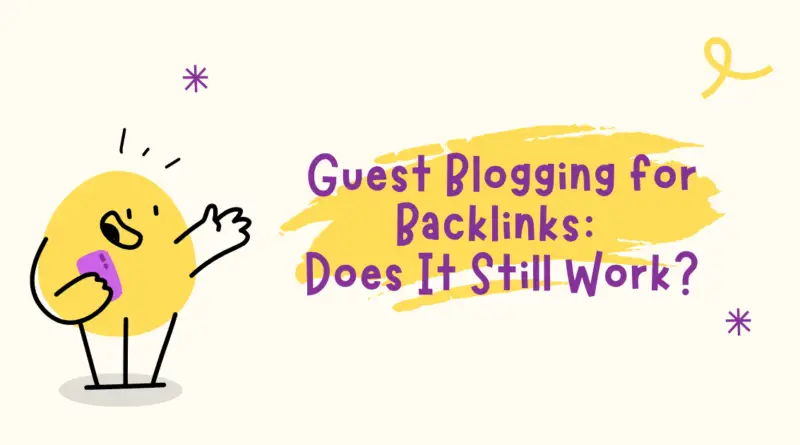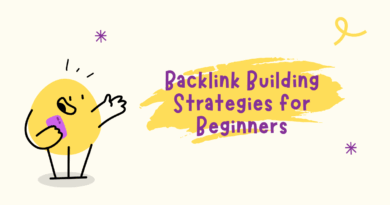Guest Blogging for Backlinks: Does It Still Work?
If you’ve been researching ways to improve your website’s SEO, you’ve likely come across the term guest blogging. But with Google’s ever-evolving algorithms and stricter guidelines, it’s natural to wonder—does guest blogging still work for SEO?
Let’s dive into that question, clear the myths, and explore how guest blogging can still play a valuable role in building quality backlinks and increasing your online visibility—if done right.
What Is Guest Blogging and Why Do People Use It?
Guest blogging (or guest posting) is when you write and publish an article on someone else’s website. In return, you usually receive a backlink to your own site—either in the author bio or sometimes within the content itself.
Backlinks are important because they:
Help search engines see your site as trustworthy
Pass authority from other websites to yours
Improve your chances of ranking higher in Google
But here’s the catch: not all backlinks are equal. A link from a respected, relevant site is far more powerful than one from a spammy blog directory.

Does Guest Blogging Still Work for SEO?
Yes, guest blogging still works—if you focus on quality, relevance, and authenticity.
Google has cracked down on low-quality or paid guest posts used purely to manipulate rankings. However, if your post offers value and is placed on a credible, niche-related site, it can absolutely help with your SEO goals.
Think of it like this:
Imagine you’re a fitness coach, and you contribute an insightful article about injury prevention to a popular fitness blog. Readers learn from your content and see your name. That backlink? It’s not just SEO fuel—it’s also an introduction to a relevant audience.
Now contrast that with publishing the same article on a generic, unrelated blog. The backlink may be there, but the value isn’t.
How Can I Find Guest Blogging Opportunities for Backlinks?
Finding the right websites takes effort, but it’s worth it.
Here’s how to get started:
🔍 Use Google Search Operators
Try searches like:
fitness + “write for us”technology blog + “guest post guidelines”"submit a guest post" + your topic
🔧 Use Tools
Ahrefs / SEMrush: Analyze competitor backlinks to find where they’ve posted.
BuzzSumo: Discover influencers and blogs accepting guest content.
Hunter.io: Find email contacts for outreach.
🤝 Join Communities
Facebook groups, Slack channels, and LinkedIn groups often share guest post opportunities in your niche.
Pro Tip: Start small. Contribute to mid-level blogs first to build credibility, then aim for higher-authority sites.
Is Guest Posting Considered White-Hat SEO?
Yes, when done ethically.
White-hat guest posting includes:
Writing original, valuable content
Linking naturally to relevant pages
Targeting relevant, high-quality sites
Avoid black-hat practices like:
Buying links disguised as guest posts
Spinning the same content for multiple blogs
Posting on irrelevant or low-quality websites
When in doubt, ask yourself: Would I still publish this content if there were no link?
What Are the Best Practices for Guest Blogging?
Want your guest blogging strategy to actually improve your SEO?
Follow these tips:
✅ Do:
Choose relevant blogs in your niche
Read the blog’s existing content before pitching
Personalize your outreach email (no copy-paste templates)
Write original, helpful, and engaging content
Include contextual backlinks within content (not just author bio)
Add internal links to the blog’s existing posts to show effort
❌ Don’t:
Send mass outreach emails with generic pitches
Use over-optimized anchor text like “best cheap shoes New York”
Submit thin or promotional content
Forget to follow up after publishing
How Do I Write an Effective Guest Post That Earns Backlinks?
Think value first. That’s what both readers and search engines want.
Here’s a quick format that works:
Hook the reader in the intro—use a real-life situation or a question
Provide structured, easy-to-read content
Use subheadings
Include bullet points
Break up long paragraphs
Add practical examples or mini case studies
Naturally link to a relevant page on your website
Wrap up with a conclusion and a call to action
👉 Example: You’re a marketing consultant writing for a small business blog. In your article on content planning, you naturally include a link to your free editorial calendar template.
That’s useful, relevant, and helpful—not pushy.
Are Backlinks from Guest Posts Still Effective?
They are—if they meet the following conditions:
From high-quality, authoritative domains
Topically relevant to your website
Placed within the content (contextual)
Not overly promotional
One or two solid backlinks from niche-relevant blogs can often outperform dozens of links from poor-quality sources.
Should I Include Backlinks in the Bio or Within the Content?
Within the content is generally more effective for SEO, especially when:
The anchor text is natural and relevant
The link adds value to the reader
Author bio links are still useful for branding and referral traffic but may not carry as much SEO weight.
What Are the Risks of Guest Blogging?
Used correctly, guest blogging is low-risk. But misused, it can backfire.
Potential risks:
Posting on link farms or penalized websites
Using exact-match keywords as anchor text too frequently
Publishing low-quality or spun content
Ignoring Google’s updated spam policies
👉 Scenario: You pay $50 to post on a site promising “fast backlinks.” Six months later, your traffic drops—Google flagged the site and devalued its links. That’s not a good investment.
Tools to Help You Succeed
Use these tools to streamline your process:
BuzzSumo: Research trending topics and influencers
Grammarly: Ensure your content is clear and error-free
Ahrefs / Moz / SEMrush: Monitor backlinks and domain authority
Hunter.io / Snov.io: Find and verify email addresses for outreach
Google Sheets: Track your guest post submissions and responses
Key Takeaways
Guest blogging still works when focused on quality and relevance.
Choose niche-relevant, trusted websites to post on.
Write original content that provides genuine value to the target audience.
Use natural links in the content, not just the author bio.
Avoid shortcuts—don’t buy guest posts from shady sources.
Guest blogging isn’t dead—it just evolved. Think of it not as a backlink scheme, but as a way to share insights, connect with new audiences, and earn trust.
Focus on value over volume, relationships over reach, and you’ll find that guest posting can still bring meaningful traffic, backlinks, and brand awareness.
So, does guest blogging still work?
Absolutely—but only if you do it the right way.



